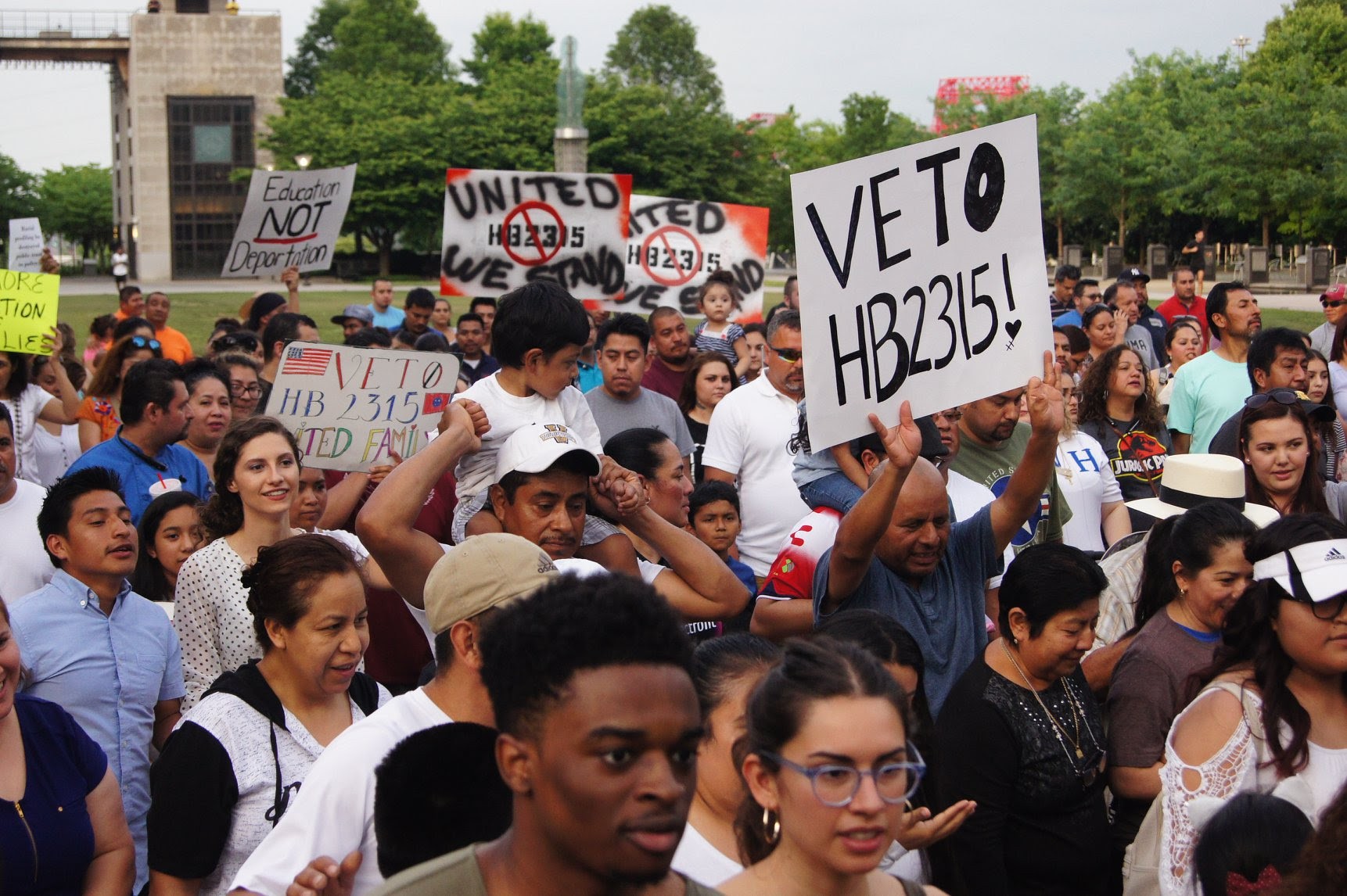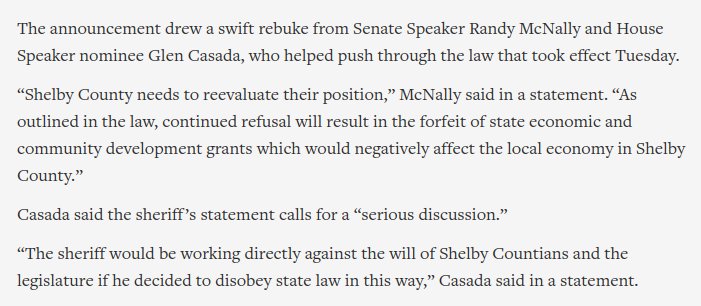 TIRRC
TIRRC
After a law that prohibits state and local governments from interfering with the enforcement of federal immigration laws went into effect on January 1st, the Shelby County attorney said that the law doesn’t apply to Shelby County or the county’s sheriff’s department.
In a Wednesday tweet the Shelby County Sheriff’s Office (SCSO) said that Marlinee Clark Iverson, the county attorney, advised that HB2315, the “new Tennessee laws governing sanctuary cities don’t apply to Shelby County or SCSO.”
“Therefore, the SCSO will not detain anyone being released from the jail unless there is a warrant or probable cause to do so,” the agency said.
SCSO will, however, continue to honor requests for notifications from the U.S. Immigration and Custom Enforcement (ICE).
The Shelby County Attorney has advised the SCSO that the new TN laws governing sanctuary cities/policies don't apply to Shelby County or the SCSO. Therefore, the SCSO will not detain anyone being released from the Jail unless there is a warrant or probable cause to do so.
— ShelbyTNSheriff (@ShelbyTNSheriff) January 2, 2019
State GOP Challenge Shelby County’s Response to New Immigration Law
Now, the notion that Shelby County is exempt from the law and that detaining individuals without probable cause or a warrant would be in violation for the Fourth Amendment is being challenged by Tennessee Lieutenant Governor and Speaker Randy McNally and Speaker Glen Casada, the Associated Press reported Friday.
 Associated Press
Associated Press
Lisa Sherman-Nikolaus, policy director at the Tennessee Immigration and Refugee Rights Coalition (TIRRC), who has called the law “one of the most extreme, anti-immigration laws in the country” said Friday that the group warned legislators that the measure puts local governments in “impossible positions.”
“Tennessee’s new ‘anti-sanctuary city’ law forces local governments to choose: violate the U.S. Constitution or violate the new state law,” Sherman-Nikolaus said. “If the Lieutenant Governor and the Speaker of the House are going to threaten Shelby County, the state should have to foot the bill when counties are inevitably sued for violating their residents’ fourth amendment rights.”
Sherman-Nikolaus adds that the TIRRC applauds SCSO and the county attorney for defending all residents’ constitutional rights.
“Local governments across the state should join together and urge the legislature to reconsider this blatantly unconstitutional law,” Sherman-Nikolaus said.
In county attorney Iverson’s legal opinion, she agreed that the law could violate constitutional rights: “The language in the statute is unclear to the extent that it can be interpreted as requiring absurd and/or potentially unconstitutional conduct by any law enforcement agency.”